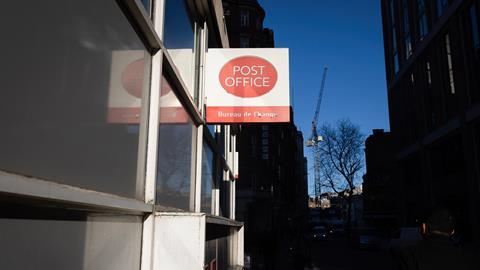Brian Altman KC, who advised the Post Office between 2013 and 2021, is questioned on his role in the organisation's response to the emerging Horizon scandal
4.30pm: And that is all for the day. Altman is thanked by the chair for his statement and for answering so many questions.
Tomorrow sees another barrister appear - this time Simon Clarke, formerly of Cartwright King and a key figure in the Post Office's response to reports of expert witness problems and employees wanting to shred minutes of meetings. We'll be back then.
4.20pm: The inquiry sees a handwritten note from Post Office lawyer Rodric Williams following the Fraser judgment into Horizon issues. This appears to be Williams and Altman discussing the impact on criminal cases review, in which Altman was said to be 'perplexed about Fraser J'. He says he does not remember what about.
Altman was later recorded as saying the Fraser judgment offered 'little assistance' to the CCRC, which he appreciates now did not age well.
4.10pm: Henry suggests that advice Altman gave to the Criminal Cases Review Commission (CCRC) was 'engage with them, by all means appear to be helpful, but let them make the running'. Altman disputes this characterisation. Henry suggests that the 'monstrous' delay in getting convictions overturned shows there had been a lack of pro-active engagement and candour to the CCRC by the Post Office. Altman concedes there was a stage when the Post Office would have been 'happy if the CCRC had stopped their interest'.
Henry says Altman had 'constantly backed the wrong horse' in terms of his strategic and tactical advice to the Post Office.
Altman replies: 'Post Office were my client.'
4.05pm: Edward Henry KC then gets his chance to ask questions of Altman and goes straight in: 'Do you think you were set up by the Post Office?'
Altman calls it an 'interesting proposition' and says it now occurs to him having seen the discussions around his appointment that the Post Office 'took comfort' from his background as treasury counsel. 'I never thought I was set up but it is a thought to wrestle with,' he adds.
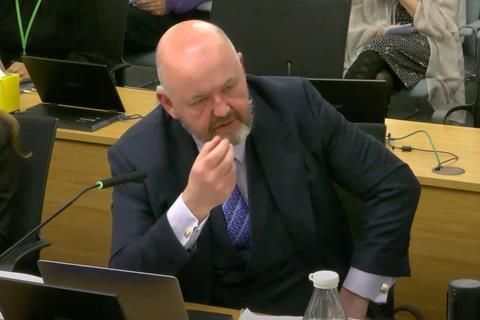
4pm: Angela Patrick, representing another group of sub-postmasters including test case Jo Hamilton, looks at another 2016 advice from Altman following an instruction from the Post Office chair.
Altman makes the point, as he has done regularly today, that his instructions were limited and he was doing the job he was asked to do.
Patrick seems to know this answer was coming, and asks whether it was ever open to him to extend his instructions. She asks whether he was ever 'professionally curious' about other elements of the Horizon issue. He says it was technically open to him to ask to extend instructions but it would not have occurred to him to suggest it.
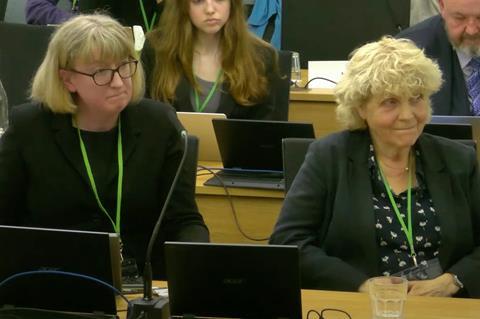
3.50pm: Stein asks whether Altman feels he was misled by the Post Office.
He responds: 'I think it was implicit in the fact that everything I read in the Horizon Issues trial judgment suggested there were bugs, errors and defects [in Horizon] that had never been brought to my attention.'
3.45pm: Altman says Stein is wrong to suggest he applied his mind and made a positive decision not to escalate what he knew about Jenkins. 'I should have advised consideration of disclosure of the fact that Gareth Jenkins was tainted and that the assessment of him as an expert by Cartwright King and me was disclosable... I didn't allow anything to continue. I am human like the rest of us, Mr Stein - probably including you - and I make mistakes.'
3.40pm: Very tense all of a sudden, as Stein really presses this issue of where Altman's ethical priorities lay. He asks the witness again why he did nothing to raise the issue of Gareth Jenkins' unreliability as an expert when he first found out about it. Stein asks Altman if he accepts that Jenkins failed to disclose what he knew about Horizon bugs and misled the court. Altman does indeed accept that.
Stein: 'Did you suggest in your advice that the Post Office need to rectify this misleading of the court? Go to the court and say this has happened.'
Altman: 'You know I didn't Mr Stein.'
Stein: 'You knew that had happened but you decided not to try to rectify the misleading problem.'
Altman: 'No.'
Stein starts on another question before Altman interrupts to ask: 'Will you let me answer?'
Stein replies: 'I did. You said no.'
3.30pm: Stein asks: 'What is your first duty as a barrister?'
Altman lists integrity, independence and doing the best for your client.
Without hesitation, Stein follows up: 'What about duty to court?'
Altman: 'Of course.'
Stein asks him to rank where duty to the court might come in his list of priorities, asking if it comes second behind the duty to the client. Altman, whose body language has visibly altered since the change of inquisitor, says: 'No.'
3.20pm: Beer has finished, leaving representatives for the sub-postmasters to ask questions of Altman. There is an almost immediate extra edge to proceedings as Sam Stein KC begins by listing Altman's duties as senior treasury counsel and reading out testimonials from his website calling him a 'brilliant operator' and 'one of the greatest at the bar'.
Stein then asks: 'What ethical guide were you following when advising the Post Office?'
Altman replies: 'The same ethical guide I always employ Mr Stein.'
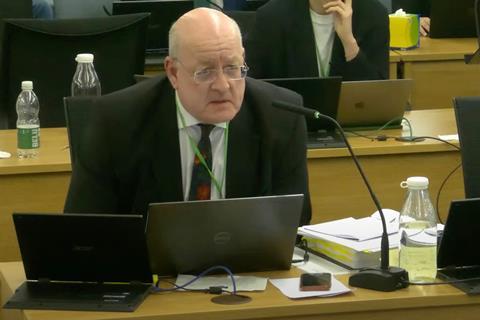
2.50pm: Before the break, the inquiry sees general counsel Susan Crichton's letter (below) to the Criminal Cases Review Commission which references Altman's review. It says that Altman's review of the Post Office's strategy and process has not detected any 'systemic or fundamental flaws'. Beer points out there is no mention of Gareth Jenkins in this letter, nor any inclusion of the caveats that Altman's review had included. The KC agrees these are missing. We go to a 10-minute break.
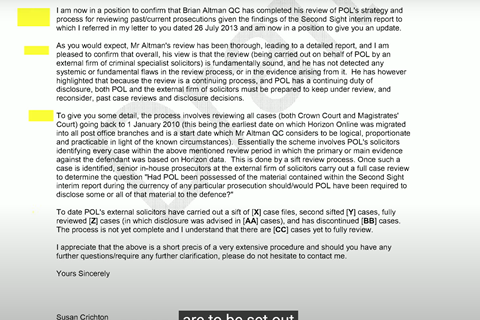
2.40pm: Beer moves quickly onto the Clarke Advice which dealt with an alleged instruction from Post Office head of security John Scott that minutes of weekly Horizon meetings should be shredded.
Altman's assessment of this instruction is that this was a 'cultural' issue in the Post Office and a 'teething problem'. He questions whether he meant to say that shredding advice was a teething problem but accepts this would not be an acceptable term for something so serious.
Beer asks whether Altman took any action on hearing such practices may have been proposed.
'I had been assured it was overcome and moved on,' he replies. 'It was not to be dismissive of it.'
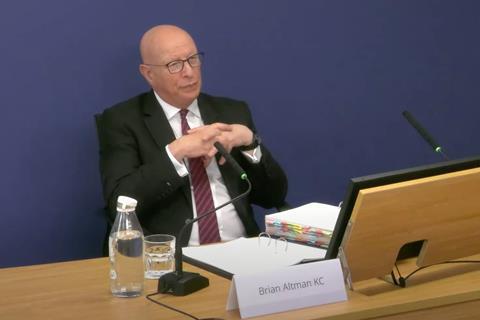
2.30pm: And more spiky exchanges, as Beer asks whether Altman's advice to Post Office that 'I am afraid' the Second Sight report may be disclosable was an example of him 'softening' his approach to the client. Altman refutes this and says this was just an example of how he expressed himself in emails.
2.25pm: There is a fascinating exchange between silks Beer and Altman, in relation to Altman's advice on the distinction between theft and false accounting. This was a key complaint of sub-postmasters - and raised by Second Sight - that they were being pressured into accepting a lesser charge if Post Office agreed to drop theft accusations.
Altman's advice stated matter-of-factly that it was not necessarily the case that one offence was more serious than the other, and that both involved dishonesty and had a potential sentence of seven years.
Altman says Beer's suggestion that he was 'seeking to help Cartwright King out' is wrong, adding: 'I am sorry Mr Beer but that is a complete misreading of what I was asked to do.'
Altman then tries to take the inquiry to a section of his advice and starts giving the reference number, before Beer interrupts and says he will do that. Beer seems not to welcome his witness' attempt to manage proceedings.
2.15pm: Questioning turns to the vital paragraph 106 of Altman's review. In it, the KC says that the Post Office and its advisers were 'wholly unaware' there might be disclosable information which had not been produced to defence solicitors. Altman tells the inquiry this advice was 'catastrophically incorrect' (he used the term 'wholly incorrect' in his witness statement), adding: 'What I discovered in later years, from the Horizon issues trial onwards, was that the landscape was entirely different. Individuals in the Post Office were very well cited on the problems.'
He said this paragraph is a 'remarkable insight into my ignorance and what I was not told and didn't understand'.

2.10pm: The inquiry returns with Beer picking up on the Altman conclusion in his review that investigations were handled in a 'well-organised, structured and efficient manner, through an expert and dedicated team of in-house investigators and lawyers'.
Beer asks a series of questions about the extent to which Altman tested this conclusion with regard to investigators - for example looking into their training or whether they understood their disclosure obligations. He says the review was never intended as a 'deep dive'. Beer asks if he was alive to the possibility Post Office might use his conclusions as a 'weapon', and the KC says he did not appreciate at the time it would be.
1.10pm: Altman is probably at his most resolute when it comes to this attendance note from September 2013, which records that he advised 'considerable caution' over mediation cases for convicted sub-postmasters, but then that there was 'concern that lawyers acting for those individuals may be using the scheme to obtain information which they would not normally be entitled to in order to pursue an appeal'.
Altman 'categorically' denies that he expressed any such concern and says it is a 'misreading' to equate his views in the first sentence with the sentiment in the second. We go to a lunch break.
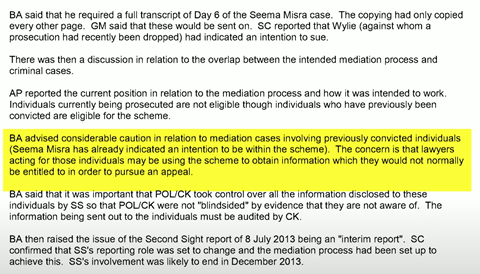
12.55pm: More discussion about Altman's advice to impose a January 2010 cut-off date for reviewing cases. Conference meeting notes show Post Office lawyers discussed whether Altman was working under the 'incorrect assumption' that there were no bugs before that date. He says he was not told such discussions took place.
Beer asks Altman whether he stands by the advice that anyone convicted before 2010 should have to come forward to join the mediation scheme or raise concerns.
He says he does, adding: 'The law has never been on past convictions that a prosecutor has to go out and search for cases which may be unsafe on the basis of little or no information.'
12.50pm: The conference notes record that lawyers discussed whether they should apologise to Misra ahead of the mediation scheme.
Altman was recorded as saying: 'I wouldn't'. He defends this stance now, saying that Misra had pleaded guilty in 2009 to false accounting and he 'couldn't understand' why the Post Office was going to apologise when she had admitted to a crime. He says it was for the Court of Appeal to disturb the conviction, not the mediation scheme.
12.40pm: A conference note from September 2013 shows lawyers including Brian Altman discussing a potential ‘cut off date’ that would prevent a review of cases going back beyond a certain point. The date of January 2010 was proposed, which would mean that Seema Misra’s case would be included.
The notes show that Altman was content with this date, but they could not ‘avoid possibility Misra's may crawl out of woodwork’, the notes record. Altman now says there is no reason to believe this was not an accurate record of what he said. He denies Beer’s suggestion that the cut-off date was a way of stopping the floodgates from opening on more potential appeals from sub-postmasters.
12.20pm: Beer asks whether Bond Dickinson was suggesting that Altman should not think about broadening the scope of the ongoing reviews of Horizon. 'It appears to be so,' he replies.
He is then asked whether this suggests a 'lurking difficulty' that issues with how criminal cases had been handled were causing concerns for the Post Office's civil lawyers.
Altman says he cannot remember anybody warning him that he should avoid saying anything which might impact civil liability. If they had, he tells the inquiry, he would have stressed that he could not be guided by potential liability. He is adamant that he never met with Bond Dickinson to discuss this.
12.10pm: We move on to a section of Altman's draft advice (see par 12 below) where he said there were other questions that should be considered in ongoing reviews. This would suggest that Post Office should be taking a much wider look at what was going on and leave the Post Office facing bigger questions.
Beer introduces the idea that at this stage civil litigation lawyers - concerned about the prospect of sub-postmasters making claims perhaps - were increasingly involved in these discussions. One email from Bond Dickinson's Gavin Matthews in response to Altman's draft suggested that the firm could 'sit down with Brian Altman to walk him through the [ongoing reviews] so that he can understand the impact of his review on the civil side'.
Altman says this conversation never happened.

12pm: Beer really pushing at this issue of why Altman (and Clarke) had concluded Jenkins was so unreliable. The inquiry counsel asks whether Altman ever considered telling the DPP, the attorney general (a pointed question, perhaps, given that the Post Office had speculated in 2013 whether Altman had the ear of both) or even the police. Altman says he didn't. Beer then asks whether this failure to disclose meant that information was not known about Jenkins until the Horizon Issues trial in 2019. Altman says it was available to the Criminal Cases Review Commission in 2015 so he was not responsible for the truth not getting out so late.
11.50am: Altman says that the two possible criminal charges would be perverting the course of justice and perjury. But again he says he is not prepared to speculate on whether Jenkins was either dishonest or incompetent.
11.40am: Altman appears on the back foot on the issue of why Clarke's advice on Jenkins was not disclosed. He says he did not apply his mind to the issue but that it 'slipped through' as the focus was on the new bugs that had been discovered. 'It is hard to look back and thing "how on earth did I miss that?" he adds.
Beer asks whether Jenkins committed a criminal offence in his provision of evidence to the court. Altman says he does not want to speculate on that.
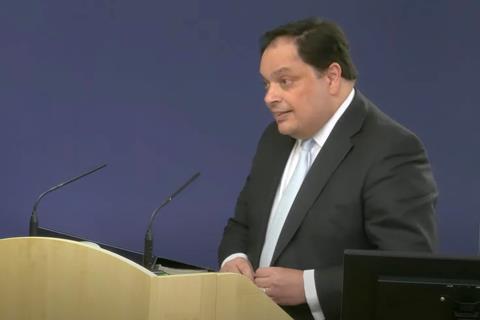
11.35am: A reminder of the Clarke Advice on Jenkins, below. Altman says he agreed with Clarke but that the advice was never disclosed.
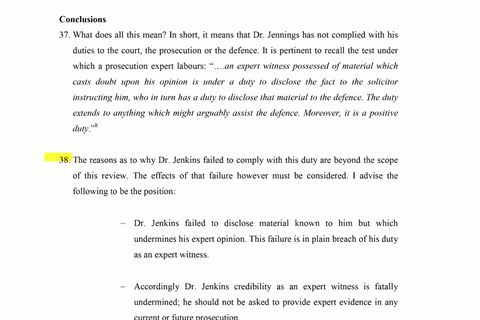
11.30am: Back from the break and Beer returns to the issue of Jenkins' part in prosecutions.
Altman's review stated that Jenkins was 'tainted and his position as an expert witness is untenable'. He accepts this was based on the Clarke Advice rather than anything he uncovered.
Was anything done, Beer asks, to then inform past and ongoing defendants facing prosecution about this position?
Altman responds: 'I know what you are driving at Mr Beer and it is something in recent weeks which I have thought about and is something that should have been disclosed to appropriate people.'
Beer repeats his question whether defendants should have been told that Jenkins wrongly withheld knowledge about Horizon bugs.
Altman responds: 'Unhappily that has to be the case. With the benefit of hindsight and having thought an awful lot about this it is something that should have been considered for disclosure.'
He accepts he should have done more to ensure this information was disclosed to the relevant people.
11.15am: The inquiry sees evidence that lawyers and senior stakeholders were discussing the existence of Horizon bugs in June 2013. None of this was disclosed to Altman despite him reviewing prosecutions at around this time. We then go to a break.
11am: Altman says he was never made aware at the time that there were serious questions in Cartwright King and the Post Office in-house team about Gareth Jenkins' role. He was not told that bugs were known about before Seema Misra's trial in 2010.
He accepts his approach might have been different if he known about these things and he would have asked to speak to Jenkins.
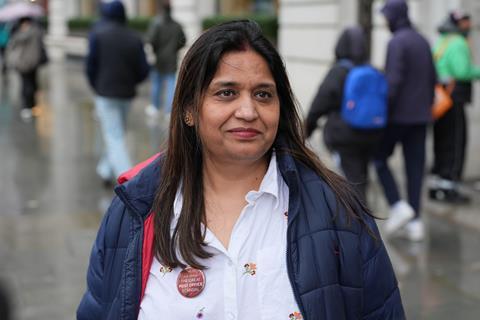
10.55am: In Altman's witness statement, which can be seen here, the KC says that 'why Mr Jenkins had failed to reveal in his witness statements or evidence the bugs or defects he knew about was not a matter for my review. However, it was the impact of those failures on his future role as an expert and more importantly the effect of those failures of disclosure on past convictions and current prosecutions that were the focus of attention'.
Beer puts to him that Jenkins' role was not examined by Altman because he himself cut this out of the terms of reference. Altman says Jenkins was not relevant to his instructions.
10.50am: The inquiry sees the draft terms of reference prepared for Altman by Bond Dickinson before he wrote that Jenkins' role should not be considered by him.
This draft states very clearly that Altman should advise Post Office on the role of Jenkins and the impact on possible appeals. The final terms of reference took out any reference to the role of Jenkins. Altman tells the inquiry he saw his remit as looking into the impact of criminal prosecutions and not investigating what had happened in the past.
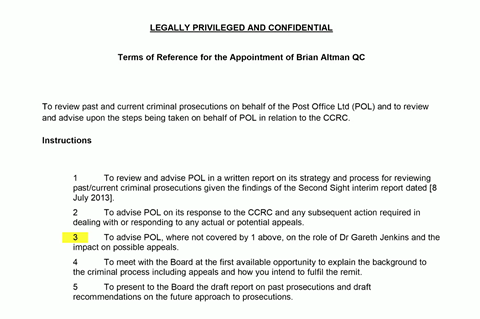
10.40am: Beer hones in on Altman's instructions which he himself set out in 2013, and in particular what Altman did about meeting key expert witness Gareth Jenkins.
Jenkins had produced reports in several cases and given live evidence in the trial of Seema Misra in 2010. But his credibility was seriously in question after the advice from Cartwright King's Simon Clarke in July 2013 which said the expert had known about bugs in the Horizon system but not disclosed this.
A month later, Altman set out his own remit in reviewing prosecutorial policy. He stated that there were risks to not meeting Jenkins but concluded that 'for now it may be better for the terms of reference to stay silent about him'. Beer, who is showing no signs of reverence to a fellow KC, asks whether Altman was here 'turning a blind eye' to potential useful sources of information.
Altman responds: 'I was not turning a blind eye to anything'.
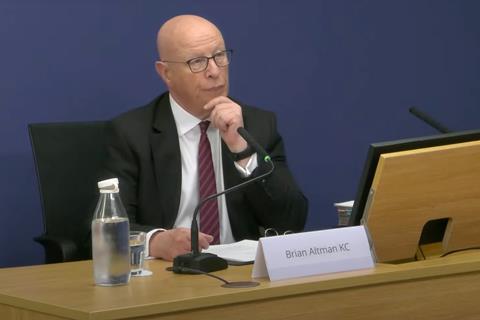
10.30am: The inquiry is now taken back to 2013 and an email from Bond Dickinson solicitor Andrew Parson ahead of Altman's appointment, saying the KC was 'very live to the political dimension'. Altman tells the inquiry that everyone was aware at this stage about the political dimension of this issue, as the Post Office was a government-owned organisation and the 'balloon was going up' in respect of past convictions.
10.25am: A reminder of Altman's advice to Post Office, which was to be used in all responses to the media: 'I have seen no evidence to suggest that Post Office Ltd exercises its investigations and prosecution function in anything other than a well-organised, structured and efficient manner, through an expert and dedicated team of in-house investigators and lawyers, supported by Cartwright King and their in-house counsel'.
It is fair to say that this position is now largely discredited, given the conclusions of Mr Justice Fraser in the civil litigation.
10.20am: While Altman denies he used his influence or connections, Beer is pursuing the line that the Post Office did. We see an internal email from solicitor Rodric Williams ahead of the BBC's One Show broadcasting an investigative piece on the Horizon scandal. The email includes in bold the question put to the Post Office and Williams' response, in which he says that Altman may be namechecked and that this option was contemplated when he was instructed.
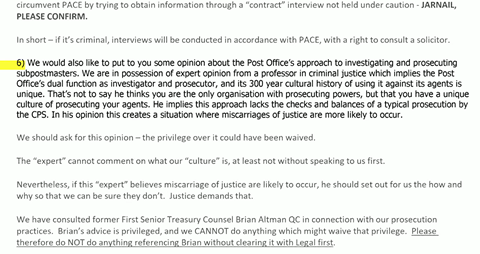
10.10am: The inquiry sees emails exchanged by Post Office lawyers prior to Altman's instruction, discussing the merits of various candidates. In one, Gavin Matthews, a solicitor with Bond Dickinson, noted that there is a 'possible attraction politically' of having a former First Treasury Counsel and later suggested Altman 'has the ear' of the director of public prosecutions and attorney general's office. In-house Post Office lawyer Hugh Flemington said these connections 'sound useful'.
Altman says these thoughts were never communicated to him and he never used any connections he had made through his past role, neither was he asked to. He concedes that Post Office might have seen 'political leverage' in appointing him but they would be 'totally wrong' to do so.
10am: Altman is being questioned today by leading inquiry counsel Jason Beer KC. So two legal heavyweights facing each other. Beer goes over Altman's background as First Senior Treasury Counsel - his role immediately before advising the Post Office - and asks whether he was conscious that the Post Office wanted to tap into that storied past.
Altman says: 'I was not conscious of it. I suppose I would say it didn't surprise me that they came to somebody with that history... no-one ever said to me "we are instructing you because of your professional history".'























